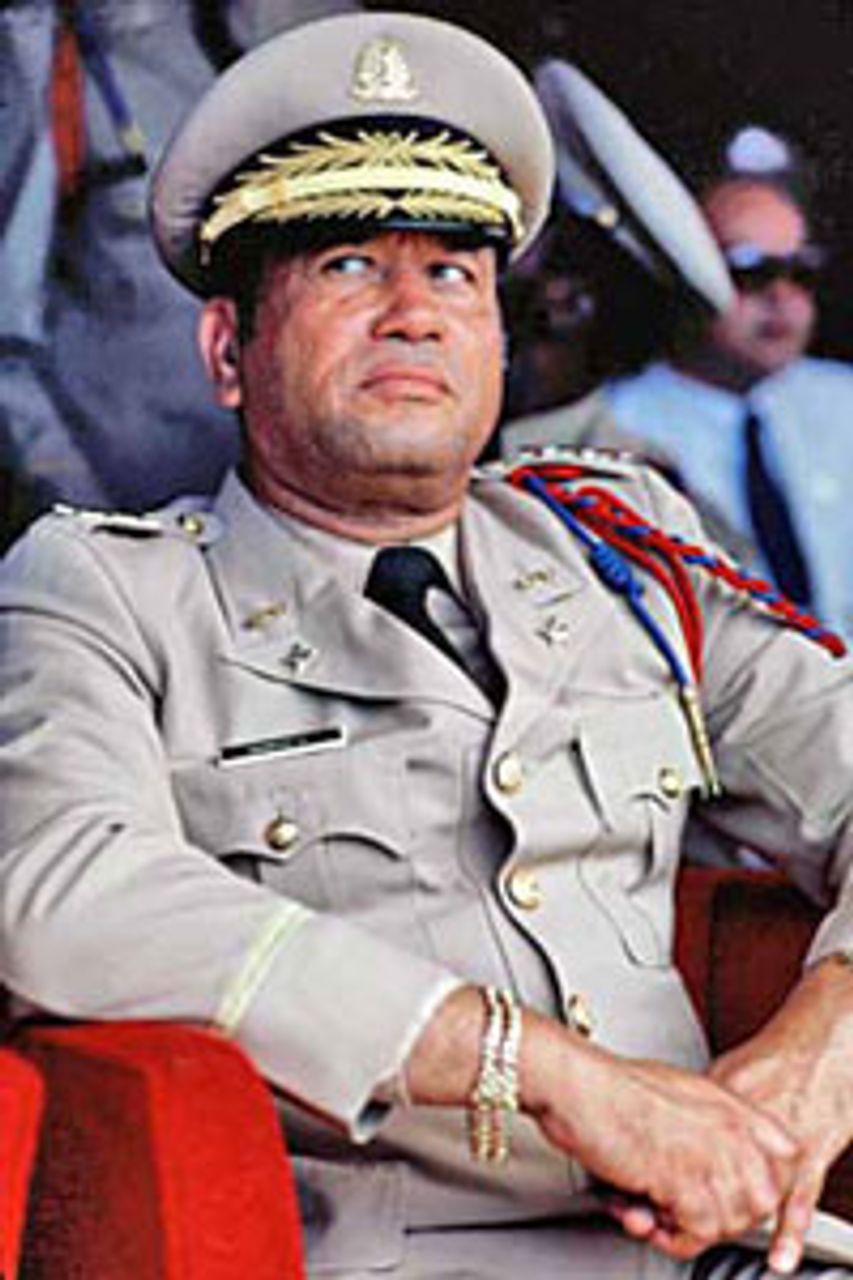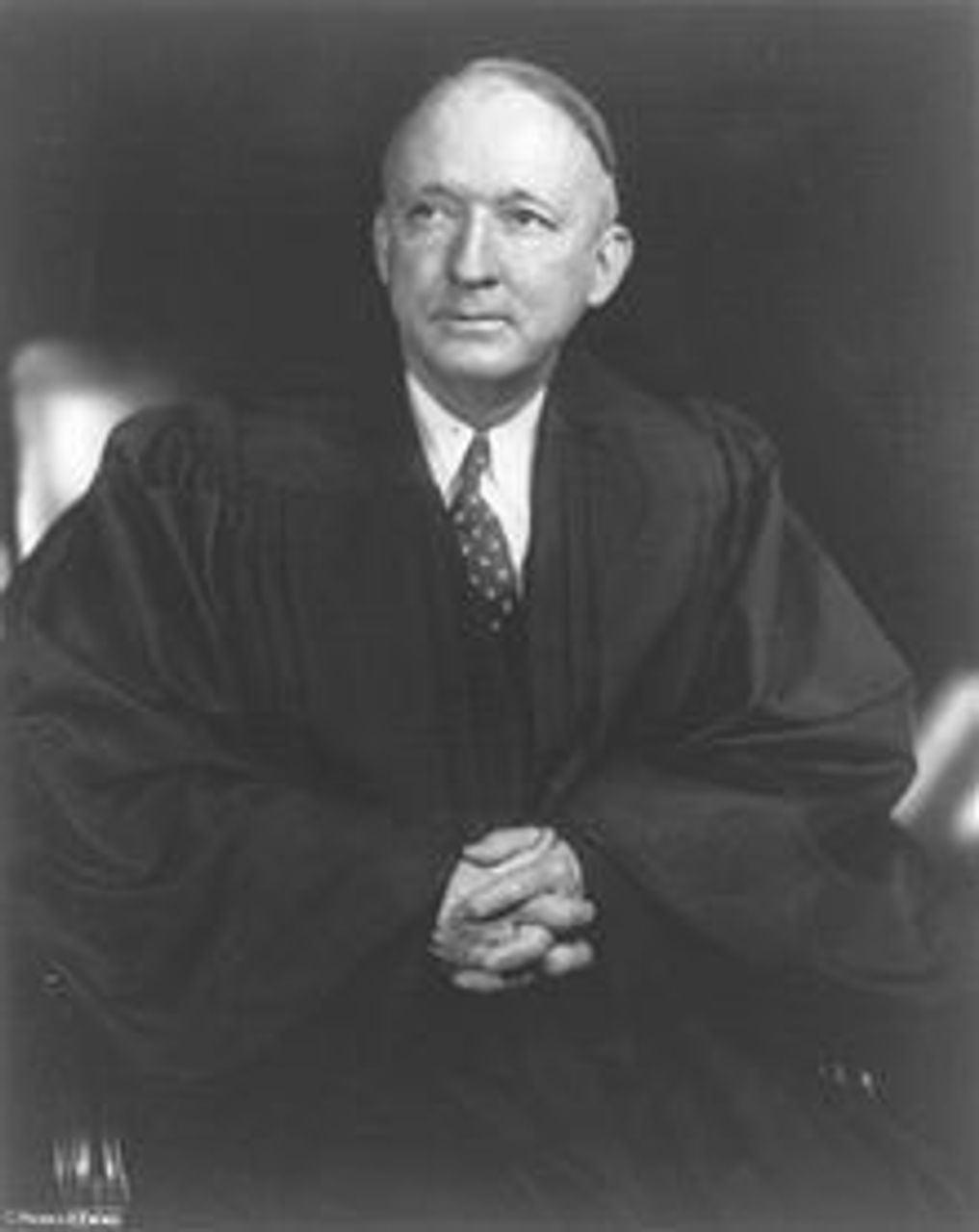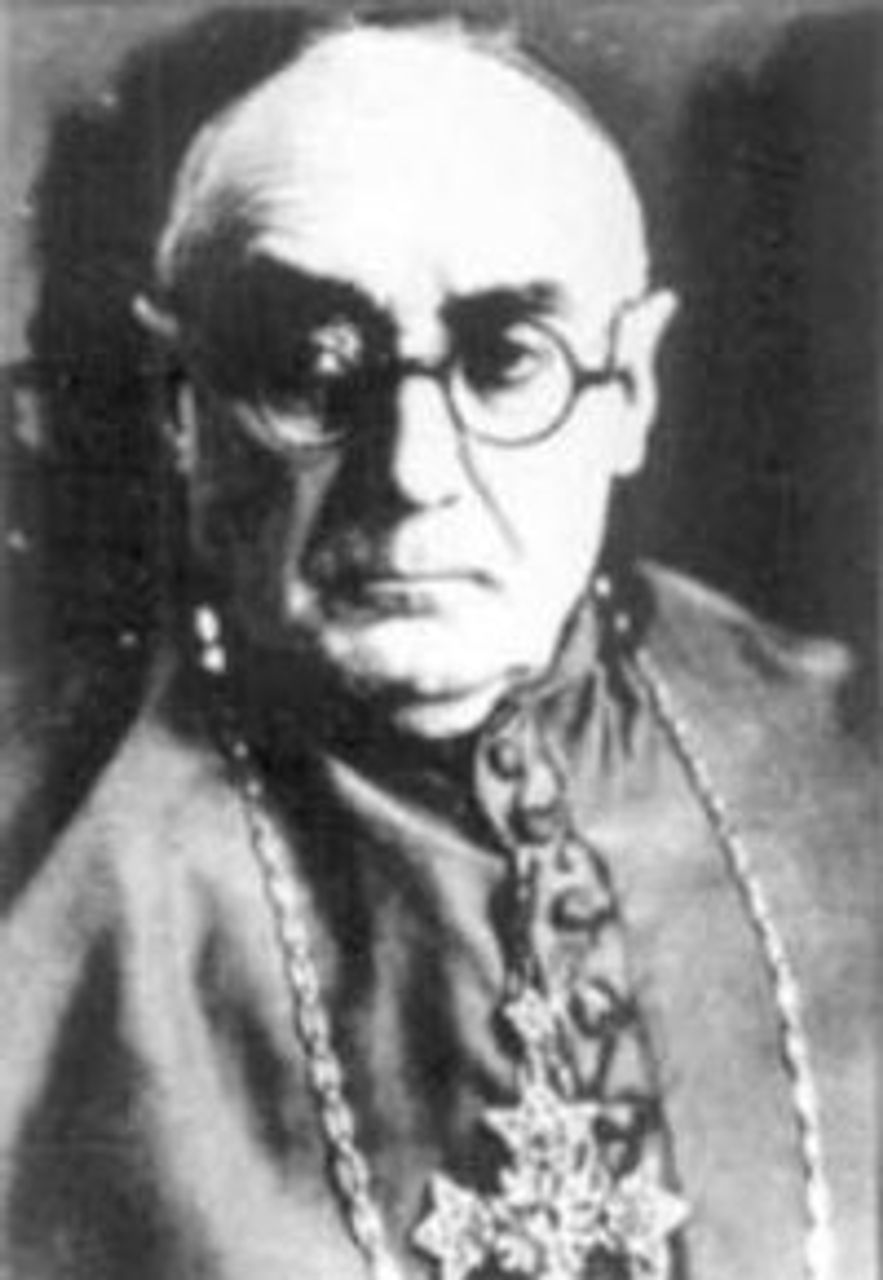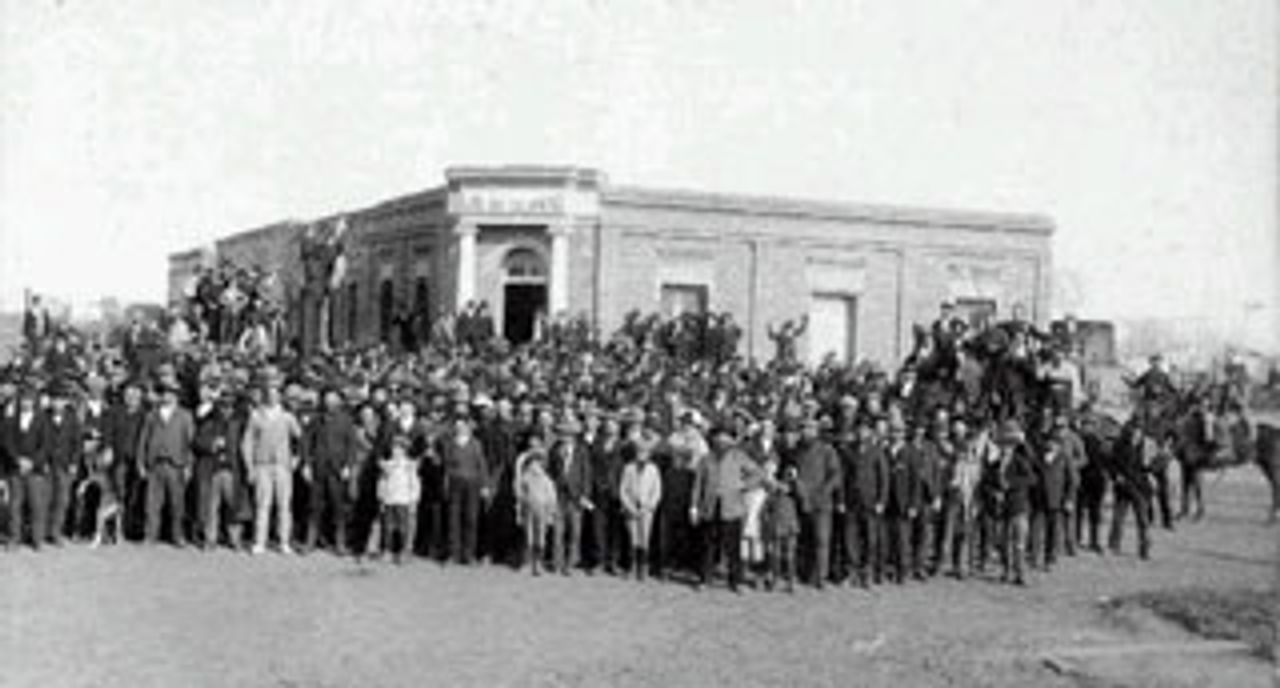This Week in History provides brief synopses of important historical events whose anniversaries fall this week.
25 Years Ago | 50 Years Ago | 75 Years Ago | 100 Years Ago
25 years ago: General strike in Haiti against US-backed junta
 Namphy
NamphyCities throughout Haiti were shut down on June 29, 1987 in the third general strike in less than two weeks against the US-installed military junta led by General Henri Namphy. The strike was in response to events that began a week earlier when one of the main unions in the country, the Autonomous Central of Haitian Workers (CATH), called a 48-hour general strike against the government’s shutdown and privatization of national industries, wiping out large numbers of jobs.
The regime then raided CATH headquarters and imprisoned and tortured 10 union leaders in the dungeons of the Dessalines Barracks, declaring that the union had “violated the basic principle of all unions, that is to be essentially apolitical.” Namphy banned CATH and overturned the independent electoral council set to oversee the municipal elections planned for the next month.
The latest strike action secured the release of the 10 unionists. Crowds defied the junta’s military, stoning cars and burning barricades. The military responded violently, shooting into crowds with US-supplied automatic weapons, wounding some 60 people, including children, and killing 10. By the time the upheaval ended on July 8, Namphy’s soldiers had killed 22 people and wounded 135.
The Namphy regime was installed by the US after the flight into exile by President-for-Life Jean-Claude “Baby Doc” Duvalier, in February 1986, forced out by a months-long popular revolt on the island. The Namphy regime was widely considered to be “Duvalierism without Duvalier.”
50 years ago: US Supreme Court rules against forced prayer in schools
 Justice Hugo Black
Justice Hugo BlackOn June 25, 1962, the US Supreme Court ruled by a 6-1 margin that mandatory prayer or moments of silence in school violated the Establishment Clause of the First Amendment of the Constitution. The case of Engel v. Vitale arose from a suit against the school board of New Hyde Park, New York, which had required that each school day begin with the prayer, “Almighty God, we acknowledge our dependence upon Thee, and we beg Thy blessings upon us, our parents, our teachers, and our Country.”
The Court agreed with the plaintiffs, parents of ten New Hyde Park children, in their interpretation of the Establishment Clause, which states in part, “Congress shall make no law respecting an establishment of religion.” The majority position, written by Justice Hugo Black, traced the history of the separation of church and state back to England in the 1500s. Black dismantled the defense argument that claimed students are not required to pray to any stated “established religion” and that the prayer is voluntary: “We think that by using its public school system to encourage recitation of the Regents’ Prayer, the State of New York has adopted a practice wholly inconsistent with the Establishment Clause. There can, of course, be no doubt that New York’s program of daily classroom invocation of God’s blessings … in the Regents’ Prayer is a religious activity…”
Mandated prayer in school was recent. The New York law in question was little more than a decade old. It has been enacted 1951, at the height of the Red Scare, and was associated with a bevy of laws enacted across the country, including loyalty oaths for government workers, that sought to smother the radical and socialist traditions of the working class.
75 years ago: Catholic bishops endorse Franco
 Franco ally Enrique Pla y Deniel
Franco ally Enrique Pla y DenielOn July 1, 1937 a collective letter was issued by Spanish Catholic bishops stating support and justification for General Franco’s military Fascist movement against the Republican government. The authority of the Church, along with bourgeois rule, had been challenged by the workers’ revolution, which rejected ecclesiastic hierarchies and religious backwardness. Papal advocacy for Spanish fascism would follow shortly.
The letter framed the civil war as a life and death struggle by the forces of religious order and civilization against international godless communism. It placed the church in the vanguard of a revanchist Fascist movement. Many signatories amongst the Bishops had close links to the extreme-right monarchist group Accion Espanola.
The bishops said that the revolution was not only “anti-Spanish” but “anti-Christian.”
The Catholic hierarchy offered its imprimatur for the horrible bloodshed then already underway and slated to intensify, as Franco sought to exterminate Spain’s revolutionary working class.
The bishops wrote, “Spain no longer had any alternative but this: either to succumb to the final assault of Communism, already planned and decreed… or to attempt in a titanic effort of resistance to free itself from the terrible enemy and save the basic principles of its social life and national character.”
100 years ago: Farmers strike in Argentina
 Argentine farmers in 1912
Argentine farmers in 1912On June 25, 1912, farmers went on strike in the first large-scale rural strike in the history of Argentina. Farmers organized to strike with a movement beginning in the corn-producing Santa Fe town of Alcorta where on June 25 two thousand farmers demanded reduced rents, longer-term contracts, the right to purchase agricultural harvesting machinery as well as the right to raise domesticated animals. The strike spread from central and southern Santa Fe into Buenos Aires, Cordoba and into La Pampa territory.
Farmers subleased plots from intermediaries who were not only local store-owners but included exporting firms such as Dreyfus or Bunge y Born. These intermediaries rented large tracts of land from landowners, who preferred to live in Buenos Aires or Paris. The intermediaries, who controlled thousands of acres and made up to 80 percent in profits yearly, subleased a few hundred acres to farmers.
The farmers’ pledge to strike until their demands were met resulted in the halting of farm work for two months. A significant outcome of the strike was the establishing of the Federacion Agraria Argentina (FAA), the first and most important farmers’ representative organization.
The political implications of the strike compelled the reformist Radical Party, who had been elected a few months prior, to end the strike to prevent the national administration, hostile to the
Radicals, from intervening and calling new elections. The Radicals adopted a conciliatory policy. Their report called for rent reductions, three year contracts and restrictions on intermediaries.
Santa Fe farmers resumed work mid-August, followed by farmers in neighboring areas.
